When you pick up a prescription, you might think the pharmacist’s job ends at handing you the bottle. But for many patients, that’s just the beginning. Medication Therapy Management (MTM) is a structured, patient-centered service where pharmacists take a deep dive into every medication a person takes - including generics - to make sure it’s safe, effective, and affordable. This isn’t optional care. It’s a core part of modern healthcare, especially for people on multiple drugs, chronic conditions, or struggling with high out-of-pocket costs.
What Exactly Is Medication Therapy Management?
MTM isn’t just checking labels or answering quick questions. It’s a full review of all medications - prescriptions, over-the-counter drugs, supplements - across all prescribers. The goal? To fix problems before they cause harm. That means catching duplicate prescriptions, spotting dangerous interactions, and ensuring each drug actually makes sense for the patient’s condition.
Since 2006, Medicare Part D has required all its plans to offer MTM to eligible beneficiaries. That’s over 12 million people in 2022 alone. But MTM isn’t just for seniors. Employers, health systems, and private insurers now offer it too, serving around 85 million Americans. The service typically starts with a 20- to 40-minute session where the pharmacist sits down - in person or via video - and asks detailed questions about how the patient takes their meds, what side effects they’ve noticed, and whether cost is forcing them to skip doses.
The Pharmacist’s Unique Edge with Generic Drugs
Here’s where pharmacists make a real difference: generic drugs. The FDA says generic drugs must be therapeutically equivalent to their brand-name counterparts. That means they have the same active ingredient, strength, dosage form, and route of administration. They work the same way. They’re just cheaper - often 80% to 85% less expensive.
But patients don’t always believe that. Many think generics are weaker, less reliable, or made with inferior ingredients. That’s a myth. Still, it leads to non-adherence. About 26% of people who don’t take their meds as prescribed say it’s because of cost. Pharmacists trained in MTM are the ones who can clear up that confusion.
During an MTM session, a pharmacist checks the FDA’s Orange Book to confirm a drug’s A rating (therapeutically equivalent) or B rating (potential bioequivalence issues). For drugs with a narrow therapeutic index - like warfarin, levothyroxine, or phenytoin - the pharmacist pays extra attention. Even small differences in absorption can matter. But for most medications, switching to a generic isn’t just safe - it’s smart.
One study from HealthPartners showed that when pharmacists actively recommended generic substitutions during MTM, patients saved 32% on their total drug costs. Another found that interventions focused on generic use accounted for 37% of all cost savings from MTM programs. One patient saved $287 a month just by switching three brand-name drugs to generics - without changing how well they worked.
MTM vs. Traditional Pharmacy Service
Traditional pharmacy work is transactional. You hand over a script. The pharmacist fills it. You pay. The whole interaction takes about 1.7 minutes on average.
MTM is different. It’s proactive. It’s clinical. Pharmacists don’t wait for problems to show up. They look for them. In a typical Comprehensive Medication Review, they identify an average of 4.2 medication-related problems per patient. That could be a drug that’s no longer needed, a dose that’s too high, or a cheaper alternative that’s being overlooked.
Studies show MTM reduces medication errors by 61% and cuts hospital readmissions by 23% within 30 days. That’s not just better care - it’s fewer emergency room visits, fewer days in the hospital, and less stress for patients and families.
And it’s not just the pharmacist’s opinion. The Medication Appropriateness Index (MAI) is a standardized tool used in MTM to score each drug across 10 criteria: Is it indicated? Is it effective? Is the dose right? Is it cost-effective? This turns guesswork into data-driven decisions.
Why Aren’t More People Using MTM?
Despite the proven benefits, only 15% to 25% of eligible Medicare beneficiaries actually participate in MTM services. Why?
One big reason: lack of awareness. Many patients don’t know MTM exists. They think it’s just another pharmacy visit. Others are told by their pharmacy that the service isn’t available - not because it’s not needed, but because reimbursement is too low.
Medicare pays $50 to $150 per Comprehensive Medication Review. But private insurers? Often just $25 to $75. For a pharmacist to spend 40 minutes with a patient, document everything in SOAP format (Subjective, Objective, Assessment, Plan), and follow up with the prescriber - that’s not a profitable transaction at $30. Many community pharmacies can’t justify the time without better pay.
Another barrier? Technology. Only 38% of community pharmacies have seamless integration with electronic health records. That means pharmacists spend extra time manually entering data, which slows everything down. And in 42 states, pharmacists still need a formal collaborative practice agreement with a doctor to make changes to prescriptions - even if they’re just switching to a generic.
Real Stories, Real Impact
One Reddit user, a pharmacist named u/PharmacistJen, shared a story that went viral. A patient came in crying because her $400-per-month brand-name inhaler was switched to a generic. She was terrified it wouldn’t work. The pharmacist spent 30 minutes explaining the FDA’s equivalence standards, showing her the Orange Book listing, and even calling her doctor to confirm the switch. The patient tried it. Her symptoms stayed under control. Her monthly cost dropped to $15. She could finally afford groceries.
Another patient on the HealthPartners portal wrote: “I didn’t know I was paying $200 a month for three meds that had $15 generics. My pharmacist found them. I didn’t have to change how I felt - just how much I paid.”
Surveys show 89% of MTM participants say they understand their meds better. 76% take them more consistently. And 68% say their out-of-pocket costs went down - by an average of $214 a month.

What’s Next for MTM and Generic Drugs?
MTM is evolving. Telehealth is now part of standard practice - 63% of programs use video visits. Pharmacists are starting to use pharmacogenomics: testing how a patient’s genes affect how they metabolize drugs. That means even more precision in choosing between brand and generic for people who don’t respond well to one or the other.
There’s also a push for standardized reporting. The American Pharmacists Association is working on uniform metrics to track how much money MTM saves through generic substitutions. That data will help convince insurers to pay more.
By 2025, 78% of health systems plan to expand pharmacist roles in MTM. But the biggest hurdle remains payment. The Pharmacist Medicare Benefits Act, passed by the House in 2021, could change that - if it becomes law. It would allow pharmacists to bill Medicare directly for MTM services, opening access to 38 million more people.
How to Get MTM Services
If you’re on Medicare Part D and take multiple medications for chronic conditions, you’re likely eligible. Check your plan’s website or call customer service. Ask: “Do you offer Comprehensive Medication Reviews?”
If you’re covered by an employer plan, ask your benefits manager. Some companies offer MTM as part of wellness programs. Even if you’re not on Medicare, ask your pharmacist if they provide MTM. Many community pharmacies do - especially those affiliated with health systems.
Don’t wait for them to call you. Take the first step. Bring your full medication list - including vitamins and supplements - to your next visit. Ask: “Can you review all my meds to see if there’s a cheaper, equally effective option?”
That’s the power of MTM. It’s not about replacing doctors. It’s about giving pharmacists the time and tools to do what they’re trained for: make sure your meds work - without breaking the bank.
What is Medication Therapy Management (MTM)?
Medication Therapy Management (MTM) is a service provided by pharmacists to review all of a patient’s medications - including prescriptions, over-the-counter drugs, and supplements - to ensure they’re safe, effective, and appropriate. The goal is to improve health outcomes by resolving medication-related problems like interactions, duplications, unnecessary drugs, or cost barriers.
Are generic drugs really as good as brand-name drugs?
Yes. The FDA requires generic drugs to have the same active ingredient, strength, dosage form, and route of administration as the brand-name version. They must also meet the same strict manufacturing standards. Generic drugs are bioequivalent, meaning they work the same way in the body. The only differences are inactive ingredients (like fillers) and cost - generics are typically 80% to 85% cheaper.
How do pharmacists decide when to switch a patient to a generic?
Pharmacists use the FDA’s Orange Book to check a drug’s therapeutic equivalence rating (A or B). For most drugs, an A rating means substitution is safe. For drugs with a narrow therapeutic index - like warfarin or levothyroxine - pharmacists review the patient’s history and consult with the prescriber before switching. They also consider patient concerns, cost, and adherence history.
Can pharmacists change my medication without my doctor’s approval?
In most cases, no. Pharmacists can recommend a switch to a generic or suggest a dosage change, but they can’t legally alter a prescription without the prescriber’s consent. However, in 42 states, pharmacists can enter into collaborative practice agreements that allow them to make certain changes under specific protocols - often including generic substitutions.
Is MTM covered by insurance?
Yes - but coverage varies. Medicare Part D plans are required to offer MTM to eligible beneficiaries at no extra cost. Many employer-sponsored plans and Medicaid programs also cover it. Private insurers may pay less than Medicare - often $25 to $75 per session - which can limit availability. Always ask your pharmacy or insurer if MTM is included in your benefits.
How often should I get a Medication Therapy Review?
Medicare beneficiaries typically get one Comprehensive Medication Review per year, with follow-up consultations as needed. If you’ve had a hospital stay, started or stopped multiple medications, or noticed new side effects, you should request a review sooner. Patients on complex regimens may benefit from reviews every 6 months.
What should I bring to my MTM appointment?
Bring a complete list of all medications you take - including prescriptions, over-the-counter drugs, vitamins, herbal supplements, and even topical creams. Also bring your insurance card, a list of your health conditions, and any questions you have. If you’ve missed doses or stopped taking a drug because of cost or side effects, tell your pharmacist. That information is critical.
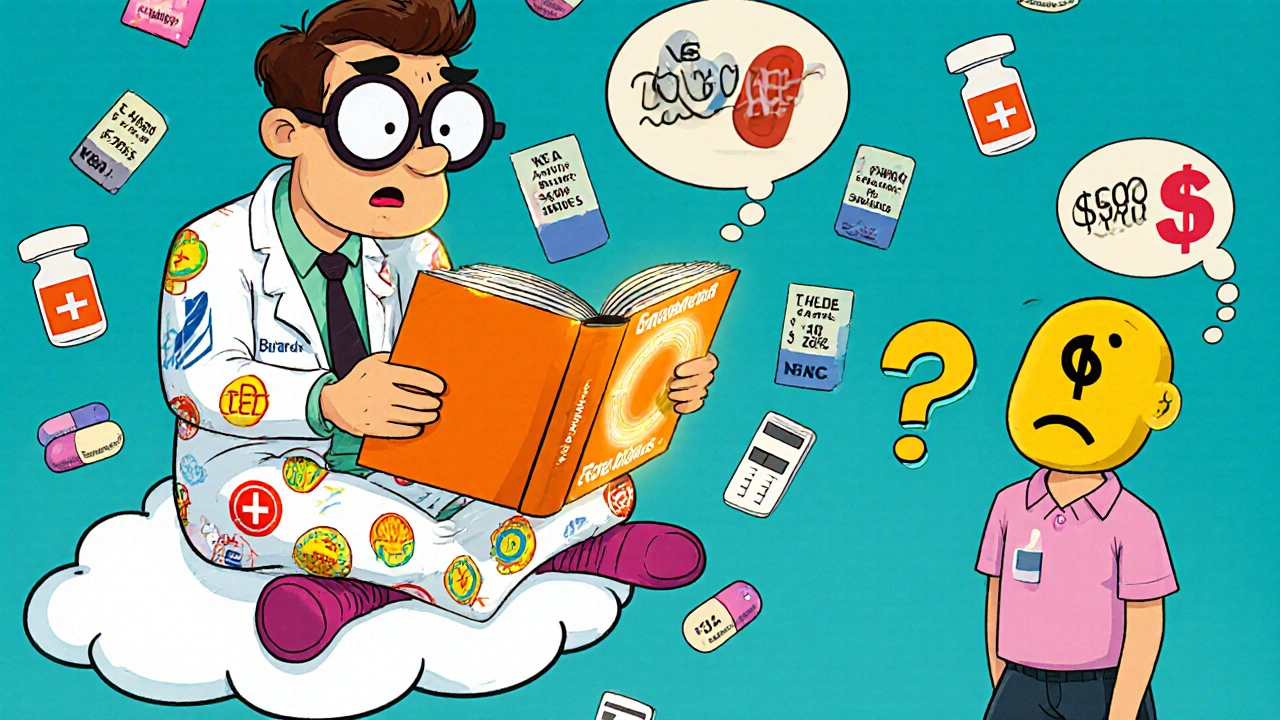
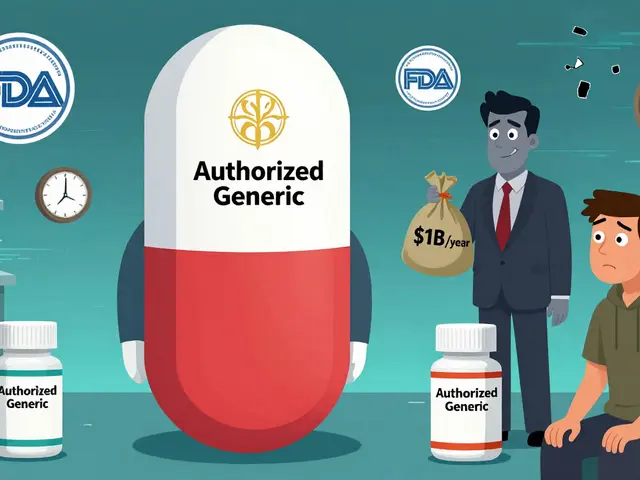
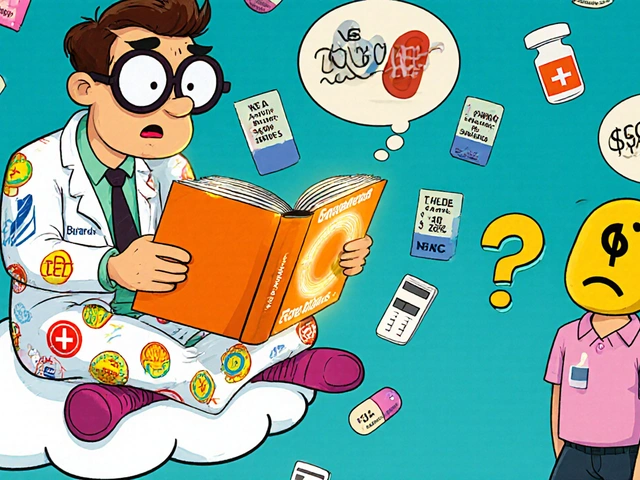
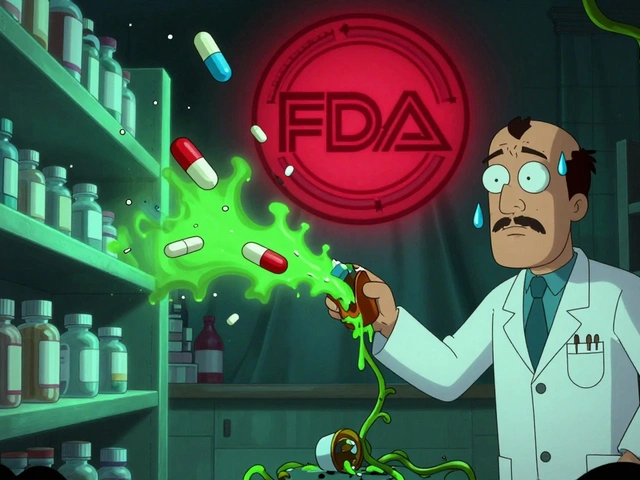
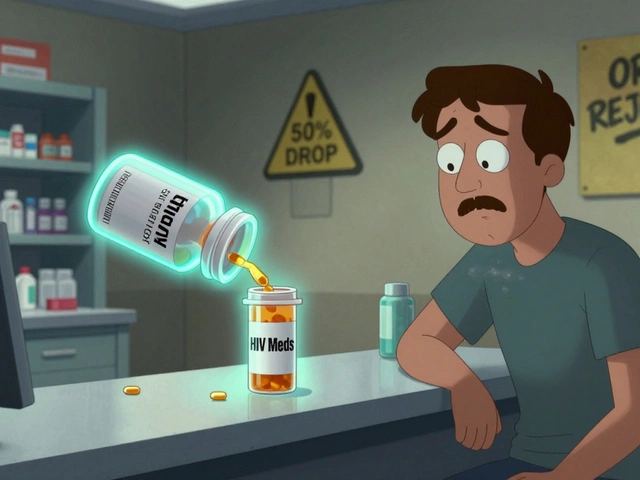
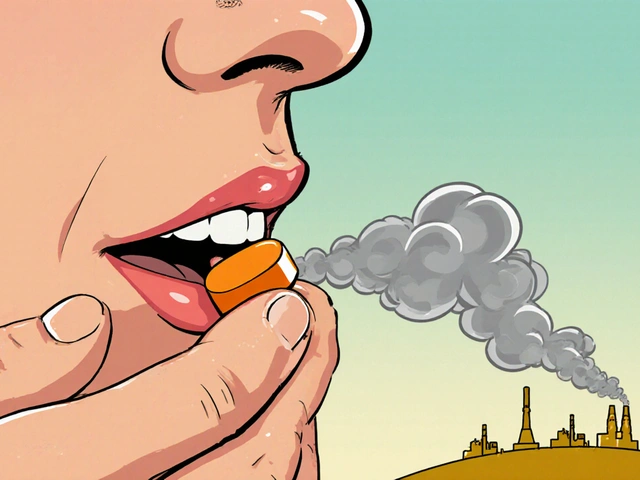



Graham Moyer-Stratton
November 28, 2025 AT 03:44tom charlton
November 29, 2025 AT 20:52Jacob Hepworth-wain
November 30, 2025 AT 20:37anant ram
December 1, 2025 AT 03:34king tekken 6
December 1, 2025 AT 11:12DIVYA YADAV
December 2, 2025 AT 13:46Kim Clapper
December 4, 2025 AT 10:38Bruce Hennen
December 4, 2025 AT 13:20Jake Ruhl
December 6, 2025 AT 05:29Chuckie Parker
December 6, 2025 AT 10:19Michael Segbawu
December 7, 2025 AT 05:21Aarti Ray
December 8, 2025 AT 19:16Alexander Rolsen
December 9, 2025 AT 04:06